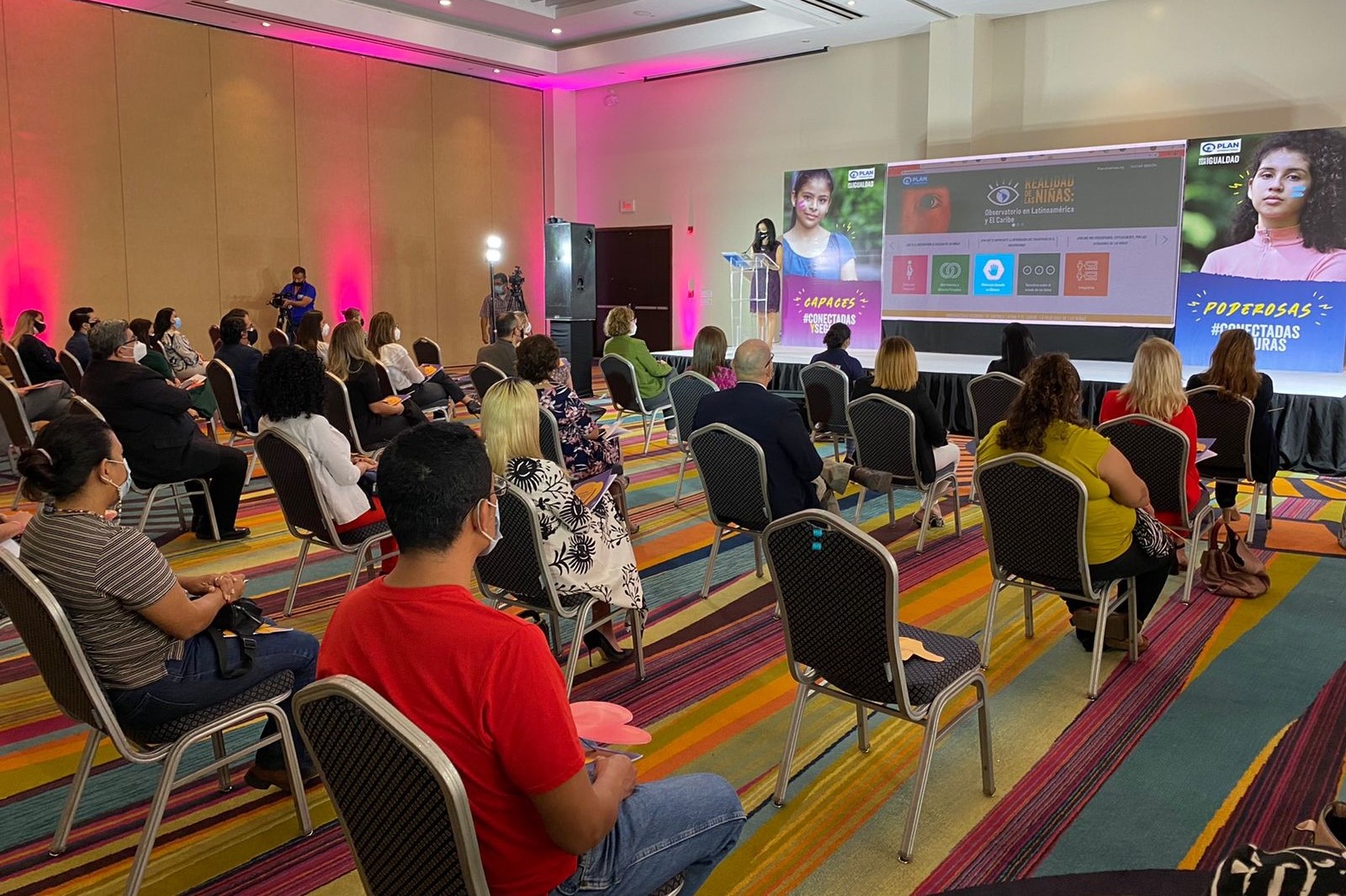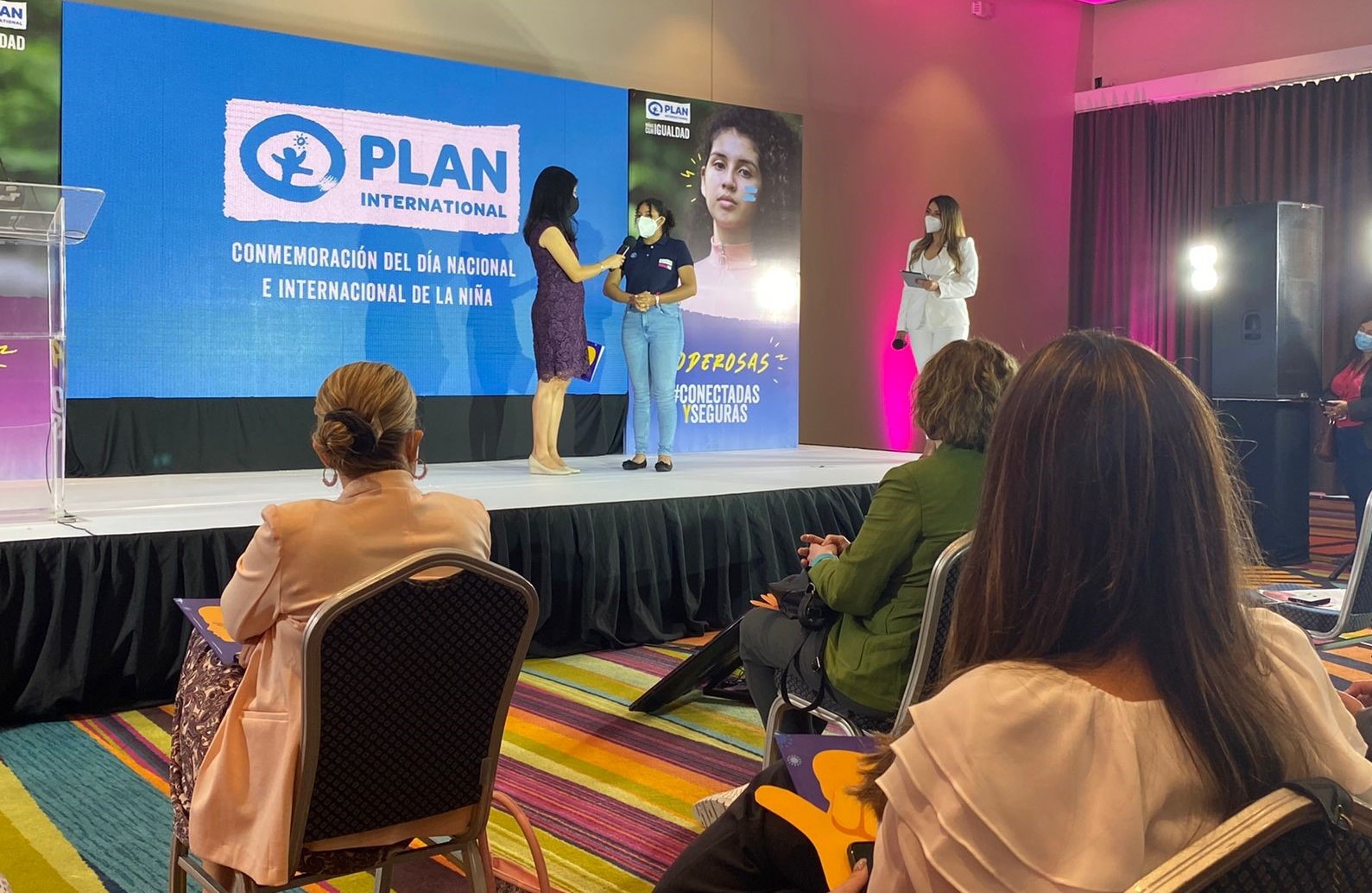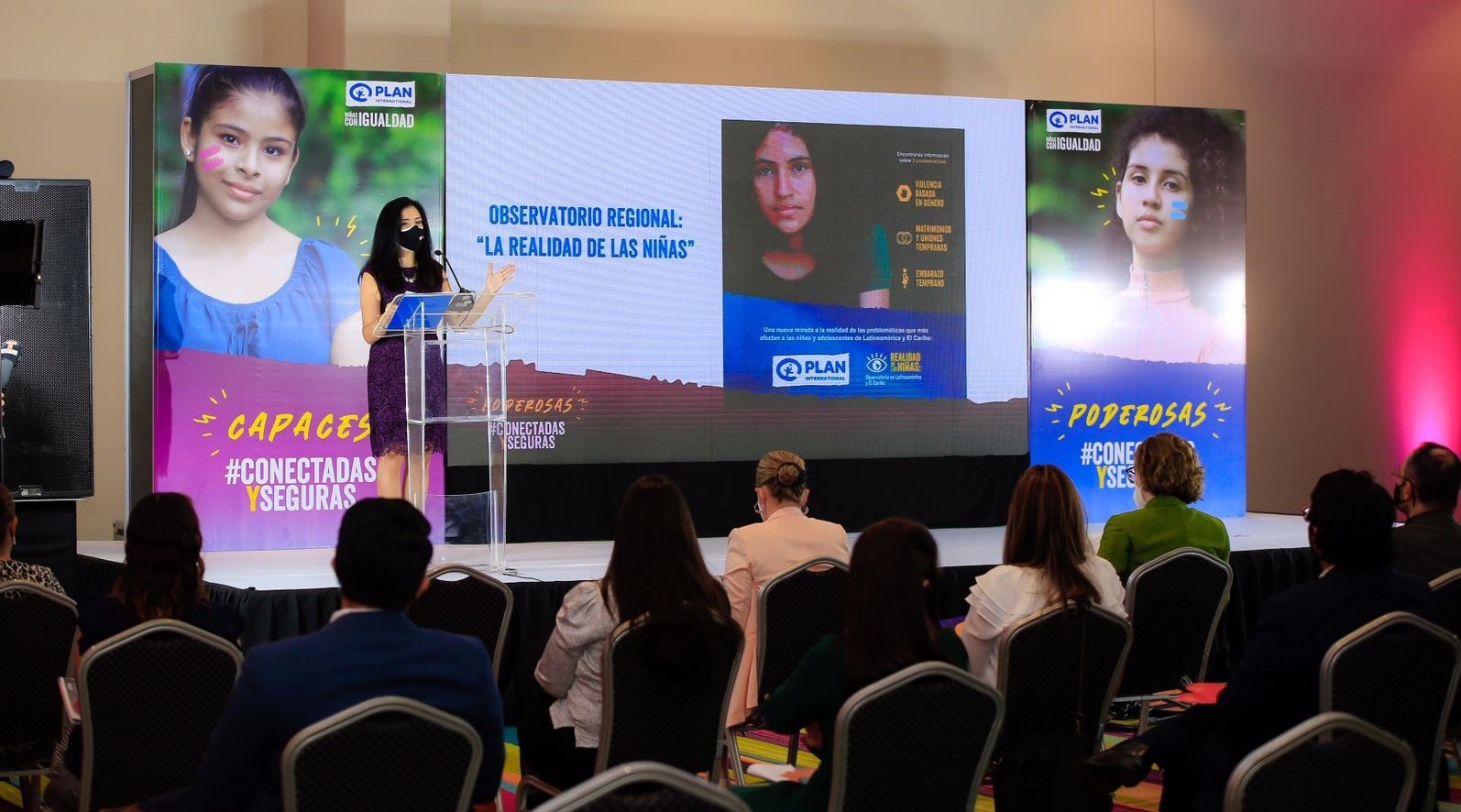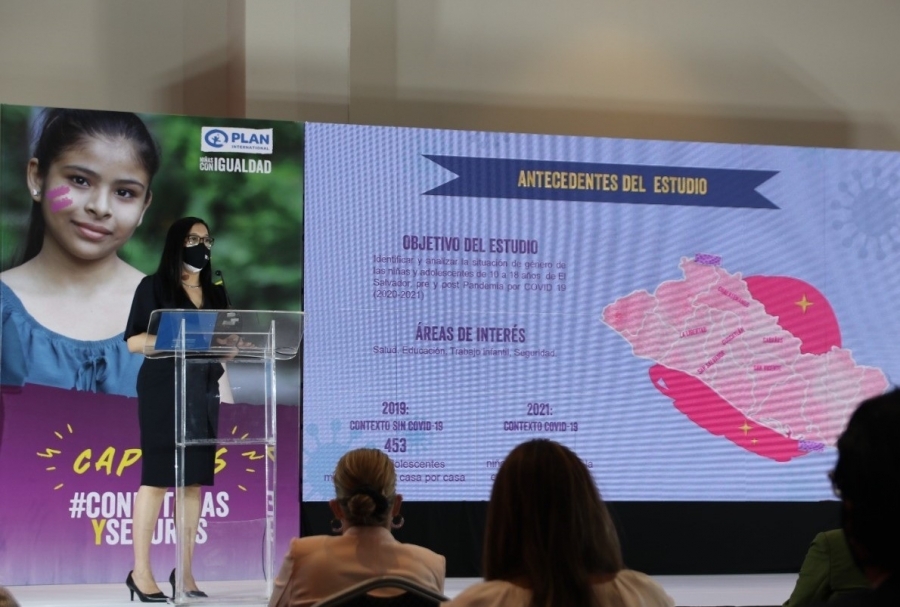For the elaboration of this campaign, Plan International took as a reference three important sources of information, which were also led and verified by the organization. One of them, a National Study on the gender situation of girls and adolescents pre and post confinement by Covid-19, which takes up four main areas: education, health, child labor and gender-based violence.

These are the main findings:
Education:
Economic and internet access problems have hindered the exercise of the right to education, since, for this year, 1 out of every 15 girls did not study.
Compulsory confinement and school closures have had a negative impact on the psycho-emotional development of girls and adolescents due to the Covid-19 pandemic.
It is confirmed that school is an environment where girls and adolescents receive important counseling and support network services.
Health:
Girls had affectations in their mental health, among nerves, sadness and decay, With greater frequency in girls aged 15 to 18 years, who, according to their profile, were already forced to work inside or outside the home.

Approximately 1 in 5 girls ever thought that life was worthless
1 in 15 respondents, ever felt like taking their own life
Child labor:
1 in 7 girls worked during confinement and at least 4 in 10 spent time, on a daily basis caring for others in their household.
About 15% of working girls and adolescents have had suicidal ideation, which occurs 3 times more among those who work, compared to non-working girls and adolescents.
The home was the place where they said they were most often forced to work, followed by work in other homes, a business, a factory, the street, buses, among others.

Gender-based violence:
Sexual harassment is experienced by girls and adolescents, either directly or indirectly. They commonly experience it within their own homes or with people close to their circle of family or friends.
Some 4.5% of the women surveyed suffered direct harassment, being asked to take photos of them without clothes, and of their private parts.
Harassment and violence did not stop during the confinement and pandemic, only the medium changed. Social media platforms became the main means of harassment for girls and adolescents, of which Facebook is the main one, followed by WhatsApp, Instagram and YouTube.
Apart from this important study, Plan International presented a second study, which highlights the current risks faced by girls on the internet, especially the effect of misinformation and misinformation online. “Entre la verdad y la mentira” is the name of this Global Study, which compiles the internet experience of more than 26,000 girls from 33 different countries, including El Salvador.
The internet and social networks have become powerful tools for consultation and communication, however, there are many factors that indicate that it is still not a safe space for girls.
According to the information collected, it is indicated:
55% of girls and young women surveyed spend more than seven hours per day online. 16% spend more than twelve hours per day.
96% of girls and young women surveyed consider social media platforms to have misinformation and disinformation.
Nearly 9 in 10 (87%) girls and young women think that false information on the internet has had a negative impact on their lives.
1 in 3 girls and young women say that false information is affecting their mental health, causing them stress, worry and anxiety. Also, 1 in 5 girls (20%) feel physically unsafe as a result of false information posted on the internet.
1 in 5 girls stopped participating in politics or current affairs on social networks.
Likewise, the organization shared that an effort has been made at the Latin American and Caribbean level in the creation of the first Regional Observatory, entitled: "The Reality of Girls", which shows the human rights situation faced by girls, adolescents and young women in 13 countries in the region. The site compiles data from 79 official and regional sources on issues related to early pregnancy, child marriage and unions, and gender-based violence. Available at: www.realidaddelasninas.org
Plan International authorities indicated that the data continues to confirm that gender inequalities continue to predominate in the 21st century, even more so in the context of a pandemic emergency. Therefore, as an organization, they hope to continue promoting awareness campaigns where everyone joins to give a timely and definitive response to these problems.
They call for investment in ICT education and digital literacy.
Digital skills development and empowerment programs for all children, especially girls and young women, and include digital literacy and critical thinking within the education system from the early years of schooling.
Each of the studies presented can be consulted at: https://plan-international.org/es/el-salvador.
 English
English  Español
Español 
